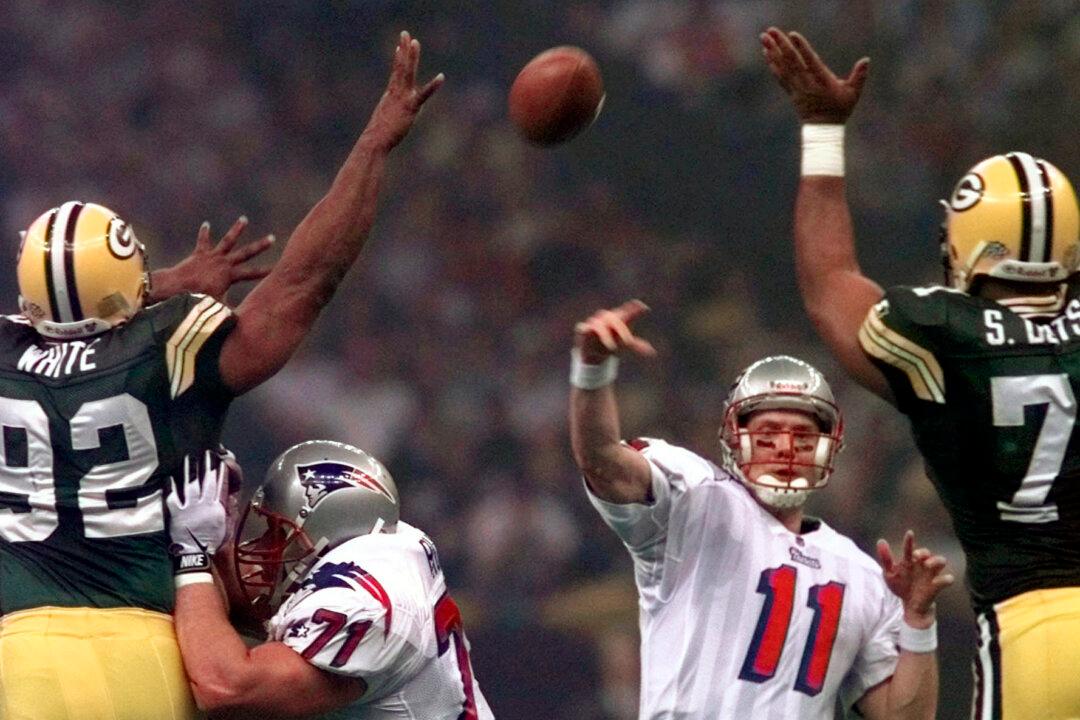The Super Bowl has produced plenty of memorably tense moments and unfathomably wild finishes.
Just last year, the pinnacle of the NFL season was punctuated by a last-second interception in the end zone by New England that sealed a victory over Seattle, when the Seahawks decided to pass instead of run and the Patriots made them pay.
Then there are the not-so-nerve-wracking games that are decided by halftime. Even with a format designed to pit the two best teams against each other for the championship, or at least produce a high-caliber contest, plenty of duds have emerged.
[aolvideo src=“http://pshared.5min.com/Scripts/PlayerSeed.js?sid=1759&width=580&height=356&playList=519459030&responsive=false&pgType=console&pgTypeId=discovery-videoDetails-grabCodeBtn”]
Here’s a look back at three of the biggest blowouts in Super Bowl history:
The Big, Bad Bears
The Chicago Bears were dominant during the 1985 regular season, finishing 15-1 while allowing an average of 12.4 points per game. So this lopsided result was hardly a surprise.
The New England Patriots were the wild-card team from the weaker AFC and making their first trip to the big game. The Bears were confident enough that year to film the famed “Super Bowl Shuffle” video, with players dancing to vintage 1980s synthesized rap music in full uniform with a series of simple rhymes touting their talent and inevitable title.
[morearticles]1953624, 1909122[/morearticles]
They had no trouble backing up the bravado with a 46-10 victory.
With seven sacks and only seven yards rushing allowed, the defense led by Super Bowl MVP Richard Dent put the Patriots in their place. Walter Payton had a quiet game on the ground, but he was hardly needed. The Bears led 23-3 at halftime and 44-3 in the third quarter, after defensive tackle William “The Refrigerator” Perry rumbled in for a 1-yard touchdown run.
Fantastic 49ers
Joe Montana and the San Francisco 49ers managed to outscore their own nickname in this 55-10 trampling of the Denver Broncos, still the most points ever scored by a Super Bowl team and the largest margin of victory in the game’s history.
The first two possessions of the second half by the Broncos ended with interceptions thrown by John Elway, and the outcome was never in doubt. By the time Montana threw his fifth touchdown pass of the night, the 49ers led 41-3 in the third quarter. That was more than enough for him to win his third Super Bowl Most Valuable Player award.
Superior Seahawks
The 48th Super Bowl was as low on drama as it was high on hype, with Denver’s dazzling offense facing Seattle’s stingy defense for the first Super Bowl held in the nation’s biggest market.
Propelled by an NFL-best 55 touchdown passes by Peyton Manning during the 2013 regular season, the Broncos set an all-time record with 606 points, an attack so potent they were slight favorites entering the game. The Seahawks, though, were more than ready for them with their hard-hitting, hustling, high-motor secondary dubbed the “Legion of Boom.”
[morearticles]1756644, 1243811[/morearticles]
This was the first Super Bowl held outdoor in a northern location, but instead of snowy or cold, it was a balmy 49 degrees at kickoff at MetLife Stadium in New Jersey. The opening kick was the last time Manning and the Broncos were actually in it.
The first snap sailed past Manning and into the end zone for a safety 12 seconds into the game, the quickest score in Super Bowl history. The Seahawks built a 22-0 lead by halftime, padded by a 69-yard interception return by Malcolm Smith for one of four turnovers by the Broncos. Percy Harvin took the third-quarter kickoff back 87 yards for another score, and Russell Wilson tacked on two more touchdown passes after that to leave no doubt about the league’s best team that year with a 43-8 decision.
Honorable mention:
- Super Bowl 22: Washington 42, Denver 10, 1988.
- Super Bowl 27: Dallas 52, Buffalo 17, 1993.
- Super Bowl 37: Tampa Bay 48, Oakland 21, 2003.





